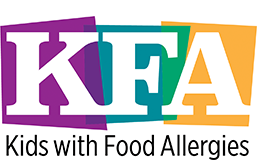 Avg. rating 4 from 3 votes.
Avg. rating 4 from 3 votes.
Recipe Created By: Janet
20 oz pkg frozen hash browns
2 pkgs turkey breakfast sausage
1 lg onion
2 cups plain rice milk
3 Tbsp safe margarine
3 Tbsp flour or corn starch
1 pkg Pillsbury Crescent Rolls
salt (optional)
black pepper (optional)
additional margarine or safe oil
Grease 9×13 inch casserole dish with safe margarine or oil. Preheat oven to 350 °F.
Fry hash browns in skillet in safe margarine or oil at medium heat. Layer hash browns in bottom of casserole dish. Set aside.
Chop onion and remove casings from turkey sausage. Cook sausage and onion in skillet until sausage is completely cooked. Layer onion and sausage mixture over the potatoes.
Melt 3 Tbsp safe margarine in skillet at medium-high heat. Add 3 Tbsp flour or corn starch to margarine and combine. Once heated, whisk in rice milk slowly. Heat until mixture has creamy consistency. Add salt and black pepper to taste. Pour sauce over sausage/potato mixture.
Unroll crescent rolls and lay on top of casserole without separating triangles.
Bake casserole at 350 °F for 20 minutes or until dough is brown.
Butter and Margarine: Butter is a dairy product made from cow’s milk. Margarine typically contains milk or soy, but there are milk-free and soy-free versions available.
Corn Substitutions: Corn is a common ingredient in products. Starch, modified food starch, dextrin and maltodextrin can be from corn. Consult with your physician to find out which corn derivatives you need to avoid. Many corn-free options are available in the US. Find out more about
corn substitutions.
Gluten: Gluten is a protein found in specific grains (wheat, spelt, kamut, barley, rye). Other grains are naturally gluten-free but may have cross-contact with gluten-containing grains. Look for certified gluten-free products if you need to avoid gluten. Find out more about
wheat and gluten substitutions.
 Avg. rating 4 from 3 votes.
Avg. rating 4 from 3 votes.





















